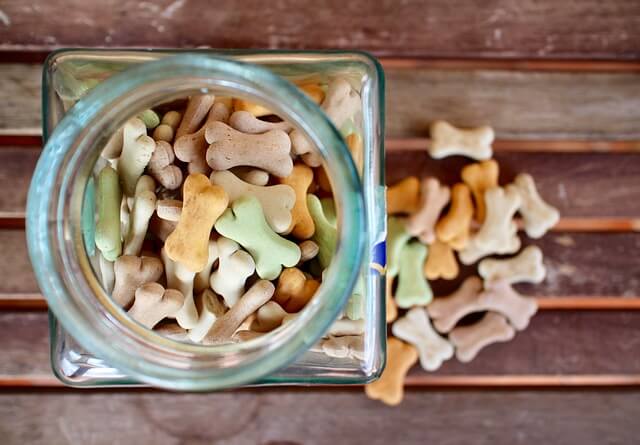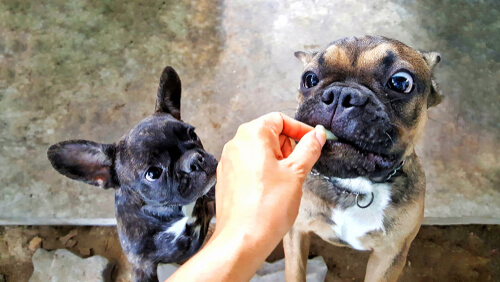Dog Treats: Which Ones Are the Best?
Dog treats usually come in different formats, such as sticks, porridges, dehydrated treats, bones and cookies. Their composition doesn't change, so the choice depends on the preference of the owners and pets.

Giving their dog a treat is a common practice among most owners, as it serves as an incentive when the pet does something you want, or just simply because you want to pamper it. While it isn’t a bad thing to give an occasional treat, it can become a problem if inappropriate dog treats are used.
Pet stores carry a wide variety of treats for dogs. While some provide essential nutrients or vitamins in their diet, others are formulated to take care of more specific aspects such as their joints or teeth. Keep reading and discover what kind of treats you can give to a dog.
Why are dog treats important?
Contrary to popular belief, treats don’t only serve to pamper your pet, but also work as an excellent positive reinforcement. This means that, under proper training, they encourage good behavior. In this way, dogs are able to learn tricks, follow commands and behave well.
In addition, pets love the taste of treats and are happy to eat them. It’s a wonderful event in their daily lives! In this way, it fosters the development of feelings of gratitude towards their owners, which greatly strengthens their relationship.

Types of dog treats or snacks
Dog treats are booming! Thanks to this, several brands have developed their own formulas with specific nutritional contents. Although many of these products serve to satiate the pet’s palate, others go further and seek to provide additional health benefits. Some of the dog treats available are the following:
- Toothcare treats (dental sticks): Used in adult dogs or dogs with permanent teeth. They’re manufactured with hard ingredients that serve as abrasives to eliminate bacterial plaque.
- Low-fat and low-calorie treats: Especially for dogs suffering from excess weight or obesity.
- Treats with additional nutrients: These serve as supplements that help to solve the deficit of some compounds, such as calcium, L-carnitine or proteins.
- Treats with omega fatty acids: These help to improve hydration and the appearance of skin and coat.
- Treats to protect joints: These contain glucosamine and chondroitin, chondroprotective compounds that strengthen the joint capsule and prevent degeneration.
- Hypoallergenic treats: These are treats specially formulated to eliminate the components that cause most canine allergies.
- Natural treats (fresh foods such as fruits, vegetables and meats): These are an alternative to commercial snacks. They contain many beneficial nutrients for the pet, although their consumption should be well regulated.
Is it necessary to give treats to dogs?
It’s important to emphasize that treats are not an essential component in a dog’s diet. This means that there’s no real biological need to justify the use of these treats. In fact, even when some provide additional nutritional benefits, they can be substituted by other types of supplements that are more effective.
Viewed another way, treats are a novel and attractive way to deliver nutrients and make the pet happy. That’s why the real benefits of treats go beyond meeting their biological needs, as they also satisfy their taste and provide pleasure.

Beware of excessive snacking
As with any food, over-consumption of treats can be detrimental to the dog’s health. In general, most nutritional diets usually contemplate treats as part of the daily rations. This is because they provide nutrients to a greater or lesser extent that are surplus to their normal diet.
Consequently, it’s possible to create a metabolic imbalance and cause conditions such as obesity, excess weight or even trigger more serious pathologies such as diabetes mellitus. So it’s better to be careful with portions. Preferably, offer a treat to your dog only when the situation warrants it.
As you can see, there’s a wide variety of treats to reward your dog with. Even though this choice is good, you should always be careful not to add nutritional supplements that your pet doesn’t need. Look after them and their health, and don’t expose them to unnecessary problems.

